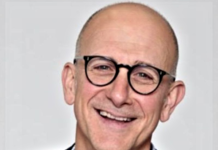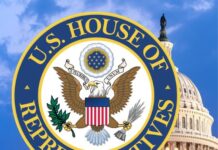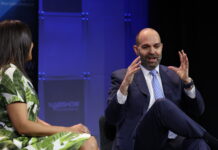
(by Renee Cassis) That was the topic of a lively discussion, Thursday, at the 34th Annual TV & Radio Financial Summit in New York City. There seems to be an expectation that this FCC, under the Chairmanship of Ajit Pai, is headed down the road that leads to less-strict ownership rules and more consolidation. Is that the answer to radio’s revenue woes?
Some executives in the radio industry believe they are handcuffed by the FCC’s current ownership rules. It’s a much different world than it was in the 90s and executives believe that in order to compete with the unregulated Facebook’s and Google’s of the world — who are taking ad revenue market share — they too should have less regulation.
Across almost every panel, Thursday, expectations of relaxed FCC ownership regulations led to a consensus that more consolidation is on the way. During the Radio Outlook panel, Beasley Media Group CEO Caroline Beasley predicted it is coming. “There are consolidation opportunities coming down the road.” Connoisseur Media CEO Jeff Warshaw took it a step further, summing up what most panelists had been alluding to throughout the day — “There should be no rules on how many stations you can own in a market.”
Warshaw also called on the industry to up its game in streaming. “We have not taken advantage of what we have. We’re running 20 commercials – or 16 or 17 – on our streams, and the generation that needs to embrace streaming won’t tolerate it.”
Programmatic was also a hot topic with the panel. New Entercom CFO Richard Schmaeling is bullish on programmatic: “The programmatic market is double the size of radio today, and we’re going to get a piece of that.” While there were no overt objections, there was a sense of cautiousness, stemming from the concern that radio not become commoditized.
Beasley also noted that radio needs to find better ways to show ROI to advertisers. And Managing Partner at Sugarloaf Rock Capital Drew Marcus spoke about radio’s long-lasting durability. “Radio has always been competitive. Maybe that’s why radio is so resilient.”
The TV & Radio Financial Summit is presented by S&P Global Market Intelligence.
Renee Casiss reported on the S&P Conference in New York City for Radio Ink and can be reached at [email protected]









The answer to more revenue is great content – the audience goes where the best content is.
A good playlist and fat promos are not great content.
Unfortunately most content directors don’t have the skills to create great content.
RADIO INK will continue to lick the boots of I-Heart and Cumulus. The magazine is nothing more than a shill for Corporate Radio. Anyone with an ounce of common sense can see what a disaster de-regulation was once the blinders are removed. Refresh my memory how deregulation was good for the ADVERTISERS…the LISTENERS…oh, and the EMPLOYEES of the radio industry.
When “corporate bullying” is considered a viable and wholly acceptable option, something in the zeitgeist is seriously and tragically flawed.
Are “Capitalism” and “Free Markets” actually dynamic concepts, or are they more like convenient weasel-words that describe a thinly camouflaged totalitarian agenda?
Maybe greed, avarice and expediency take the place of any reasonable ethics and are totally acceptable premises.
I’m from out-of-town, so I’m just askin’.
Perhaps LOCAL OWNERSHIP is a better answer. Insist the radio owners actually live in their communities and participate in the “public interest, convenience, and necessity”. What’s so radical about that? Radio works best when it is local. IHeart and Cumulus are both responsible for the horrible rates in my market. They are both under such pressure to generate revenue, that they will take any deal at almost any price. The spot loads are up and the revenue is down 17% in my market. Sure, let’s sell them all to IHeart. What a great solution. Sometime I feel I’m like the little Dutch boy with his finger in the dyke.
42 years in radio, the last 13 as an academic who’s studied and written on it, and as I read this, I don’t know whether to laugh or cry.
These “captains” of industry have learned absolutely nothing since 1996. Investors beware.
Sure! Let’s let Sinclair own all the TV stations and iHeart all of the radio stations. Sounds like a winner to me! I’m sure we can count on them to be the proper stewards of our airwaves and give us lots of variety in viewpoints and nothing by high quality programming.
No- consolidation is not the answer. We have two of the championship consolidators just steps away from bankruptcy. As soon as the main studio rule is abolished, they’ll slice and dice and end up with only a handful of stations that are staffed. The rest will be run from master control centers in a handful of cities.
The key is “RATE.” “If only we could buy all the stations in the market we could demand higher rates and the advertisers would have to pay them.” 2 + 2 usually ends up as 1 1/2…and more debt.
Radio is a relationship business. A diverse mix of radio ownership is best for the business. Sure, some stations will go under–but most markets have too many stations to begin with.